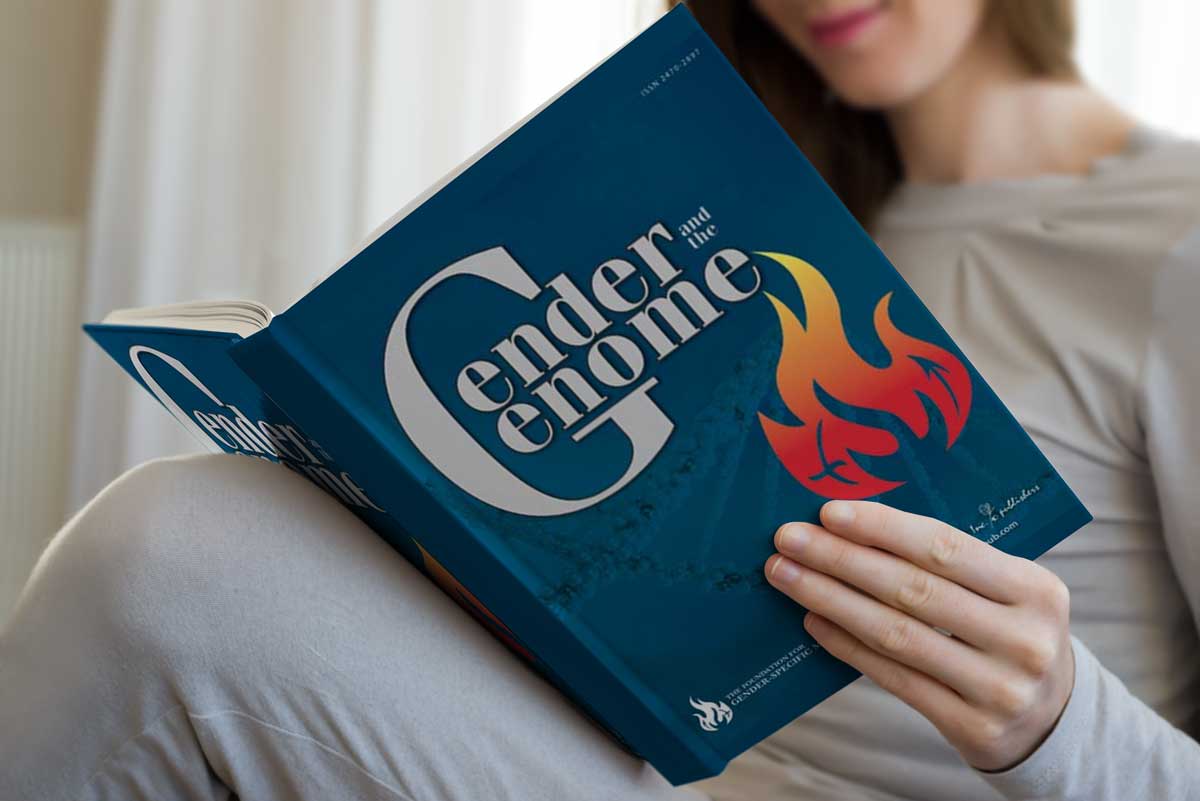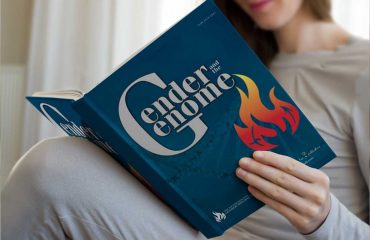Letter from the Editor
Dear Colleague,
Our new journal, Gender and the Genome, has made an exciting and productive debut with its first three issues. Our new venture, dedicated to exploring the relevance of gender-specific medicine to the latest advances in 21st century biomedical investigation, is thriving. The whole landscape of health care has changed with the delineation of human genome structure and our newfound ability to modify it. This is a time of unimagined new vistas of biomedical research at the molecular level and Gender and the Genome is harvesting important examples of the emerging and innovative new science.
The theme and focus of the journal are reflected in our three roundtable discussions. We have investigated the relevance of chromosomal sex to gene editing in our first issue, which featured experts in genetic engineering like Dr. George Church of MIT and Dr. Henry Greely of Stanford, who commented on the legal and ethical aspects of the new methodology. Our second roundtable discussed the analysis of men and women’s fitness and training for space travel in our expanding effort to explore the universe. The most recent roundtable, led by Dr. Gillian Einstein of the University of Toronto, explores the impact of environment on gene expression which highlights our growing understanding of the epigenetic mechanisms involved in the formation of the phenotype.
Reviews and original investigation published in our first two issues have included topics as diverse as a discussion of the relationship between artificial intelligence and gender and a joint commentary on the importance and advantages of considering sex in biomedical investigation from the Office of Research on Women’s Health at the NIH and the US Food and Drug Administration. Original papers exploring the molecular mechanisms that underlie the Takotsubo syndrome and the genetic basis for the mechanisms of dyslipidemia in Filipino American women appear in the third issue.
We are enjoying a spectacular group of new submissions, most of which have been entered in our $25,000 Birch Award competition for the best original papers and/or reviews. The Birch Award is intended to accelerate the submission rate and the quality of papers, and to encourage the most expert investigators to send us their most provocative and useful observations. A significant exploration of topics of particular interest to us in 2018 will include the controversy about the impact of the environment on phenotype and whether or not we will soon be able to offer credible, evidence-based molecular mechanism for the transgenerational inheritance of acquired traits, papers that explore the factors that underlie human sexual behavior, and in the implications of the expanding development of artificial intelligence. Our new power to alter the genome demands scrutiny with regard to the implications of such alterations, which doubtless have sex-specific phenotypic consequences.
Our Editorial Board, without question a collection of world class authorities and luminaries, continues to build the content and guide the direction of Gender and the Genome. We are looking forward to 2018, which we anticipate will provide us with an exciting harvest of papers that will delineate with ever expanding expertise the relationship of biological sex to the explosion of scientific information the 21st century has offered since the description of the human genome. The science of this century has presented us with a new paradigm of how to define the factors that shape us as human, a new view of how the scaffolding of disease later in life is shaped during embryogenesis, and consequently of new methods to augment and improve men and women’s function throughout the life span. Gender and the Genome is at the forefront of 21st century biomedical investigation—it is an exciting place to be.
We welcome your manuscript submissions for peer review and encourage you to recommend the Journal to your library.
Sincerely,
Marianne J. Legato, MD, Ph. D. (hon. c.), FACP is an internationally renowned academic, physician, author, lecturer, and pioneer in the field of gender-specific medicine. She is a Professor Emerita of Clinical Medicine at Columbia University College of Physicians & Surgeons and an Adjunct Professor of Medicine at Johns Hopkins Medical School. Dr. Legato is also the Director of the Foundation for Gender-Specific Medicine, which she founded in 2006 as a continuation of her work with The Partnership for Gender-Specific Medicine at Columbia University. She received an honorary PhD from the University of Panama in 2015 for her work on the differences between men and women.
At its core, gender-specific medicine is the science of how normal human biology differs between men and women and how the diagnosis and treatment of disease differs as a function of gender. Dr. Legato’s discoveries and those of her colleagues have led to a personalization of medicine that assists doctors worldwide in understanding the difference in normal function of men and women and in their sex-specific experiences of the same diseases.
She began her work in gender-specific medicine by authoring the first book on women and heart disease, The Female Heart: The Truth About Women and Coronary Artery Disease, which won the Blakeslee Award of the American Heart Association in 1992. Because of this research, the cardiovascular community began to include women in clinical trials affirming the fact that the risk factors, symptoms, and treatment of the same disease can be significantly different between the sexes. Convinced that the sex-specific differences in coronary artery disease were not unique, Dr. Legato began a wide-ranging survey of all medical specialties and in 2004, published the first textbook on gender-specific medicine, The Principles of Gender-Specific Medicine. The second edition appeared in 2010 and the third edition, dedicated to explaining how gender impacts biomedical investigation in the genomic era, won the PROSE Award in Clinical Medicine from the Association of American Publishers in 2018. A fourth edition is forthcoming.
She also founded the first scientific journals publishing new studies in the field, The Journal of Gender-Specific Medicine, and a newer version, Gender Medicine, both listed in the Index Medicus of the National Library of Medicine. She has founded a third peer-reviewed, open access journal, Gender and the Genome, which focuses on the impact of biological sex on technology and its effects on human life.
Dr. Legato is the author of multiple works, including: What Women Need to Know (Simon & Schuster, 1997), Eve’s Rib (Harmony Books, 2002), Why Men Never Remember and Women Never Forget (Rodale, 2005), Why Men Die First (Palgrave, 2008), The International Society for Gender Medicine: History and Highlights (Academic Press, 2017), and most recently, The Plasticity of Sex (Academic Press, 2020). Her books have been translated into 28 languages to date.
As an internationally respected authority on gender medicine, Dr. Legato has chaired symposia and made keynote addresses to world congresses in gender-specific medicine in Berlin, Israel, Italy, Japan, Panama, South Korea, Stockholm, and Vienna. In collaboration with the Menarini Foundation, she is co-chairing a symposium on epigenetics, Sex, Gender and Epigenetics: From Molecule to Bedside, to be held in Spring 2021 in Italy. She maintains one of the only gender-specific private practice in New York City, and she has earned recognition as one of the “Top Doctors in New York.”




